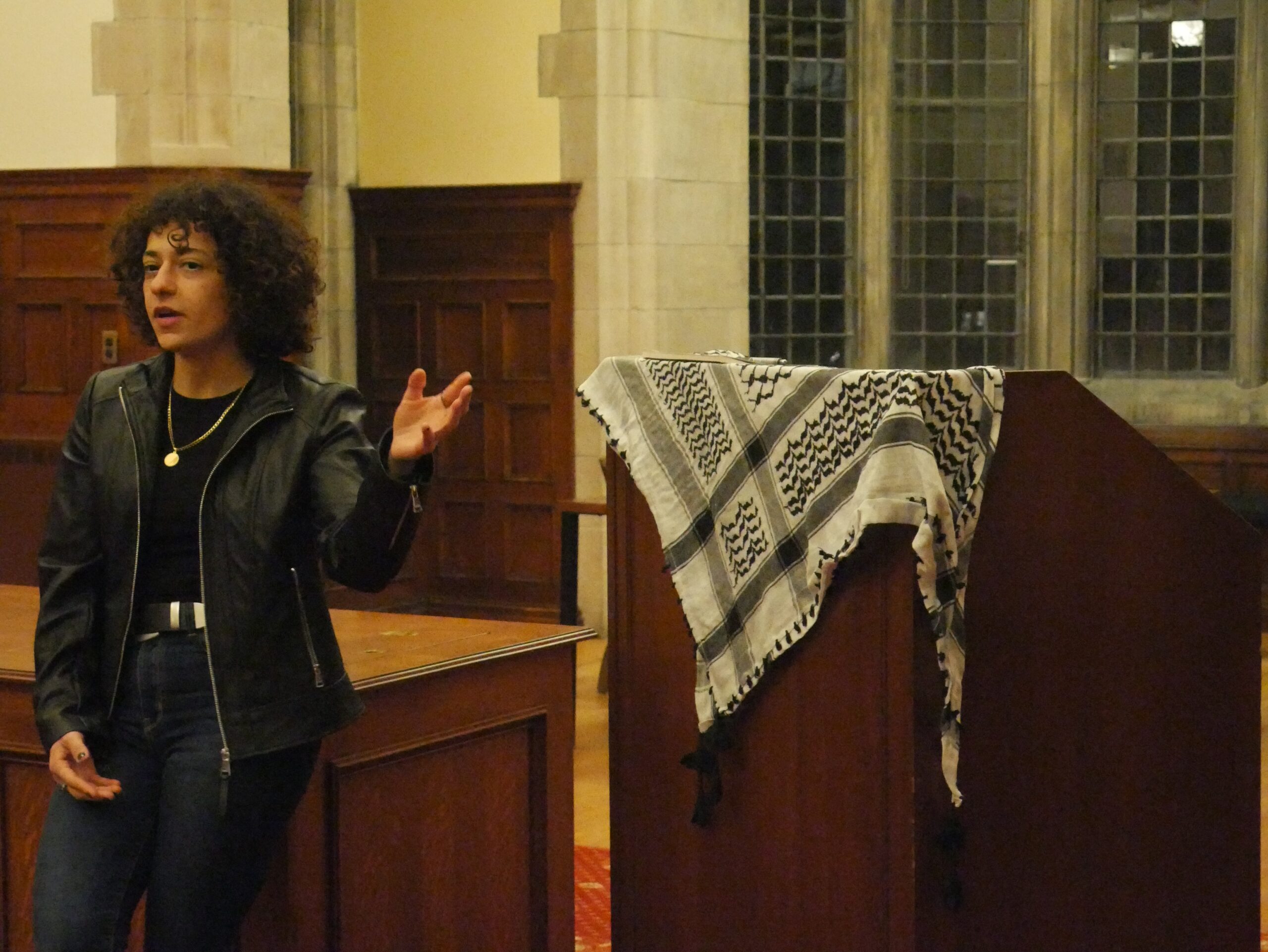Poet and journalist Noor Hindi hosts poetry writing workshop and reading
November 8, 2024
 Isa Cruz
Isa Cruz“Colonizers write about flowers.”
The first line of Noor Hindi’s poem “F–k Your Lecture on Craft, My People Are Dying,” comments on the way in which flowery language is used to talk about colonialism, genocide and Palestine.
Noor Hindi is a Palestinian-American poet and journalist who writes on the natures of witnessing, political poetry and its relationship with personal experiences. She also writes on topics such as colonialism, patriarchy and her experiences as an Arab in the U.S. Her debut book “Dear God. Dear Bones. Dear Yellow.” is a renowned collection of poems that includes many of these topics. The collection was also an honorable mention for the Arab-American Book Award.
This past Wednesday, Hindi was invited on campus to host a poetry workshop and deliver a poetry reading. Both events were sponsored by the Nightingale Society and the Quill. Assistant Professor of English Samia Rahimtoola, the organizer of these events, explained how the process of bringing Hindi to campus was a unique one.
“It’s very exciting, because, actually [Hindi] had a visit planned with Colby College,” Rahimtoola said. “And I have some colleagues and friends who are at Colby, and they just reached out and said, ‘Hey, Noor wants to do more stuff when she’s in Maine. What do you think?’ Originally, it was going to be just one event, a poetry reading. But then we realized it’s actually just so special to have a young working poet coming here. So … it became this much richer visit.”
Hindi opened the reading with a poem by another Palestinian-American poet, Fady Joudah. She then read two poems from her collection “Dear God. Dear Bones. Dear Yellow.,” entitled “Breaking [News]” and “All My Plants Are Dead,” among other poems not in the collection.
The workshop was smaller than the reading and focused on the discussion of epistolary poems, which are read in the form of a letter. Noor decided on five different poems to read and analyze during the workshop, as well as one writing exercise where students wrote letters. Hindi chose the epistolary form because of the emotional expression she thought it could bring to students.
“I think it’s a great unlocking measure in terms of helping us access our emotions and access intimacy,” Hindi said. “I don’t think [it] comes out sometimes when we’re working outside of it. It’s a lot easier to go into detail when you’re writing a letter.”
Hindi also spoke on the importance of epistolary writing in her own work.
“I reference the epistolary a lot in my own work as a craft decision,” Hindi said. “And I feel like I’m constantly writing a letter to somebody in my work. I hope that students can find access to their own writing and what they want to say through the epistolary.”
After reading the poems, students participated in writing their own. Hindi gave three prompts to choose from: to write an epistolary on someone in your contacts whom you haven’t spoken to in six months, to write to your younger self and to a color, place or thing.
Workshop participant Jack Twining ’27 remarked that he left the workshop feeling better than he did when they entered.
“I think a lot of people were feeling at a loss for words, given the workshop was the day after Election Day,” Twining said. “We began the workshop with an icebreaker. [She told us to] ‘name one thing you are grieving and one thing you’ve discovered that brings you joy,’ and a lot of people said they were grieving their loss of hope. I think the workshop was a small pocket of hope. Being surrounded by a bunch of poets and getting to talk with Noor was a reminder of how important finding and building community is, how essential community is for survival, retaining hope and creating action.”

Comments
Before submitting a comment, please review our comment policy. Some key points from the policy: